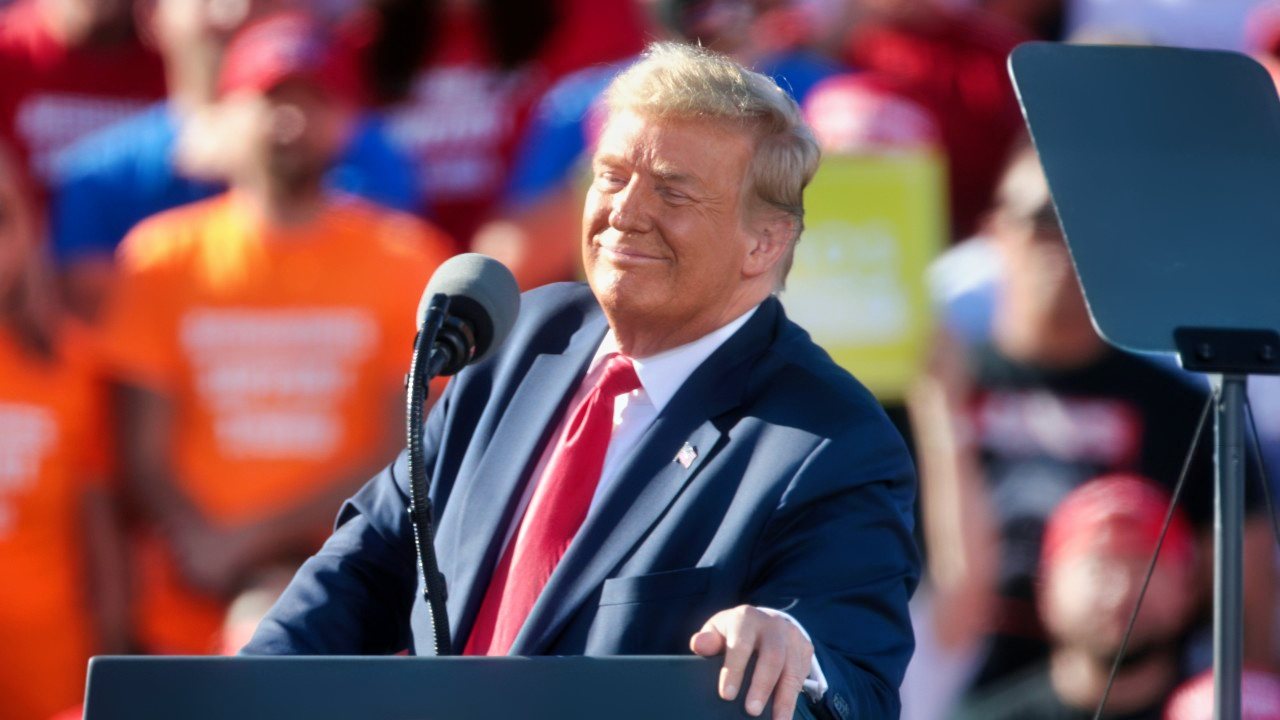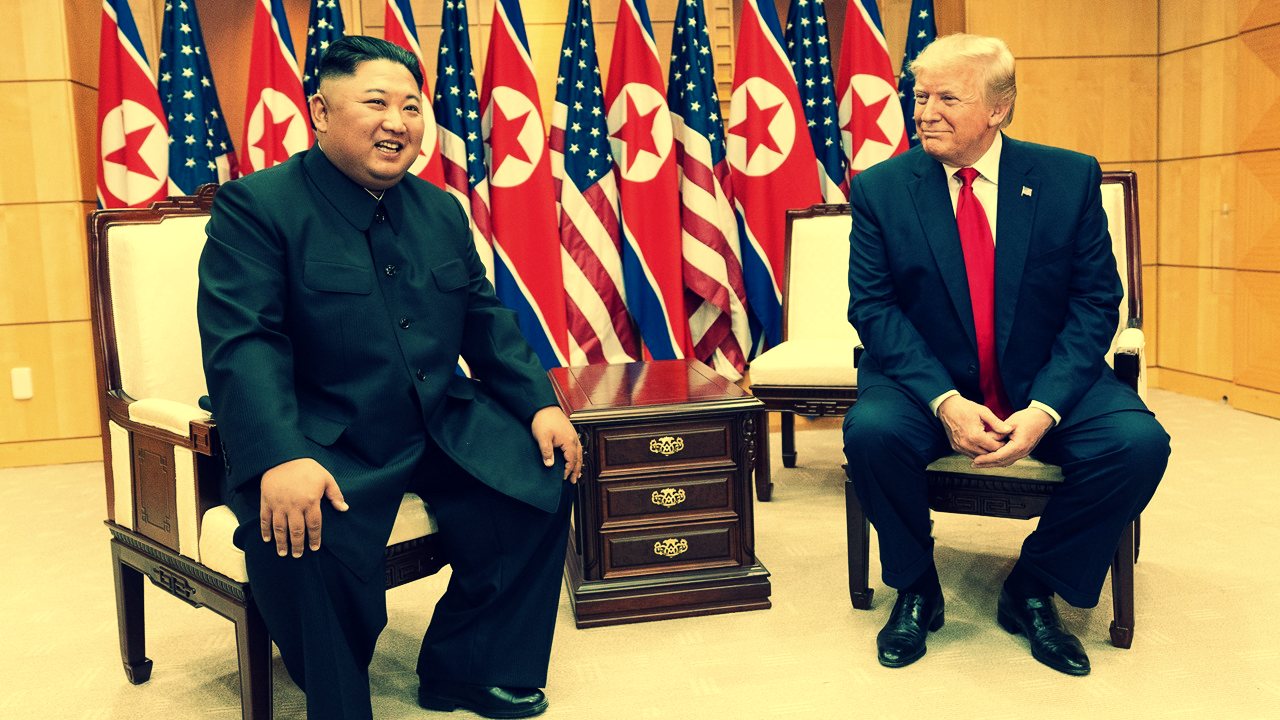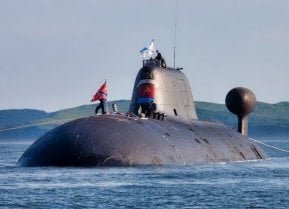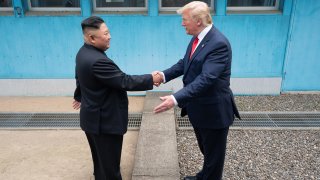North Korea Needs to Get Ready for a Second Donald Trump Presidency
Donald Trump’s return to the presidency would give North Korean paramount leader Kim Jong-un a highly unusual four-year window to win important political and economic concessions from Washington.
Donald Trump’s return to the presidency would give North Korean paramount leader Kim Jong-un a highly unusual four-year window to win important political and economic concessions from Washington.
There is one possible downside for the Democratic People’s Republic of Korea (DPRK): Trump would likely shorten the Ukraine War (almost certainly by means favorable to Putin and tragically disadvantageous to Ukraine). Pyongyang currently enjoys a mutually beneficial business arrangement with Moscow, supplying the Russians with munitions in exchange for Russian technical assistance to improve DPRK missiles. Perhaps the partnership would continue to expand into other kinds of exchanges. Still, it is also possible that DPRK weapons programs would get less Russian help because the Russians would lose interest in buying North Korean materiel.

To be sure, Kim now has less of a need for a deal with America than in the past. Post-pandemic DPRK trade with China has returned to robust levels. China and Russia have stopped enforcing economic sanctions against North Korea and are not supporting attempts by the United Nations Security Council to impose new sanctions. The DPRK has an upgraded relationship with Russia. In general, the authoritarian bloc looks both globally ascendant and welcoming to North Korea.
However, America can still make Kim’s day. If it chose to, Washington could legitimize the DPRK’s claim as a “responsible nuclear weapons state.” Pyongyang’s frequent use of this phrase indicates Kim’s desire for international assent. Current U.S. policy refuses to officially acknowledge North Korea as a nuclear weapons state, let alone a “responsible” one.
The United States still maintains onerous economic sanctions against North Korea. Sanctions relief was Kim’s main objective at the failed 2019 summit in Hanoi. Despite the compensating effect of new economic opportunities with other states, getting the U.S. sanctions lifted would still be a significant win for Kim if he could achieve it at a low cost.
Most importantly, America has the power to weaken the U.S.-ROK alliance, one of the DPRK’s most sought-after objectives. This is the area where a second Trump presidency could be a boon to Kim.
Trump has a relationship with Kim that the former president evidently values. Despite the breakdown in bilateral relations in the latter part of his presidency, Trump still praises Kim. And while Pyongyang thunders with harsh insults for Washington and Seoul, the North Korean officialdom has refrained from commenting negatively on Trump since the Trump-Kim summits of 2018 and 2019. Apparently, both sides are keeping the possibility of another summit open.
Since before he was president, Trump has spoken disdainfully of the U.S.-ROK alliance and of his desire to withdraw U.S. troops now based in South Korea. Trump has said U.S.-ROK joint military exercises, which are a regular feature of the alliance and designed to ensure combat readiness in case of a North Korean attack, are “expensive” and “provocative.”
Kim, as well, wants to see the exercises stop, the alliance end, and American forces go home. This would be an unambiguous, momentous victory for Kim. It is conceivable this could happen under Trump II. Trump would spin it as freeing the United States from a one-sided obligation to a wealthy and free-riding ally.
Trump is notorious for wanting the appearance of a win even in the absence of an actual win. He, of course, claimed he won the 2020 presidential election. His trade war against China mostly hurt Americans. Especially pertinent here is that Trump claimed in 2018 to have removed the North Korean nuclear threat to the United States. He even mused that he deserved the Nobel Prize. Trump now says he prevented a “nuclear holocaust” with North Korea and “saved millions of lives” by meeting with Kim, a claim that lacks logic or evidence.

Fortunately, Trump was able to accept leaving the Hanoi Summit without even a fake win. He passed on the opportunity to make a splashy announcement of a U.S.-DPRK agreement rather than accepting what, from the U.S. standpoint, was a poor deal proposed by Kim. The outcome might have been different, however, if Kim had focused on negotiating a peace agreement.
Trump was the only sitting U.S. president in history who met with a DPRK leader, spoke admiringly of him, and embraced essential aspects of his agenda at the expense of a U.S. ally. If the North Koreans get Trump II, they may never have such an opportunity again.
About the Author: Denny Roy
Denny Roy is a Senior Fellow at the East-West Center in Honolulu, specializing in Asia-Pacific strategic and security issues. He holds a Ph.D. in political science from the University of Chicago. He is the author of Return of the Dragon: Rising China and Regional Security (Columbia University Press, 2013), The Pacific War and its Political Legacies (Westport, CT: Praeger, 2009), Taiwan: A Political History (Cornell University Press, 2003), and China’s Foreign Relations (Macmillan and Rowman & Littlefield, 1998), co-author of The Politics of Human Rights in Asia (Pluto Press, 2000), and editor of The New Security Agenda in the Asia-Pacific Region (Macmillan, 1997). He has also written many articles for scholarly journals such as International Security, Survival, Asian Survey, Security Dialogue, Contemporary Southeast Asia, Armed Forces & Society, and Issues & Studies.
All images are Creative Commons.


